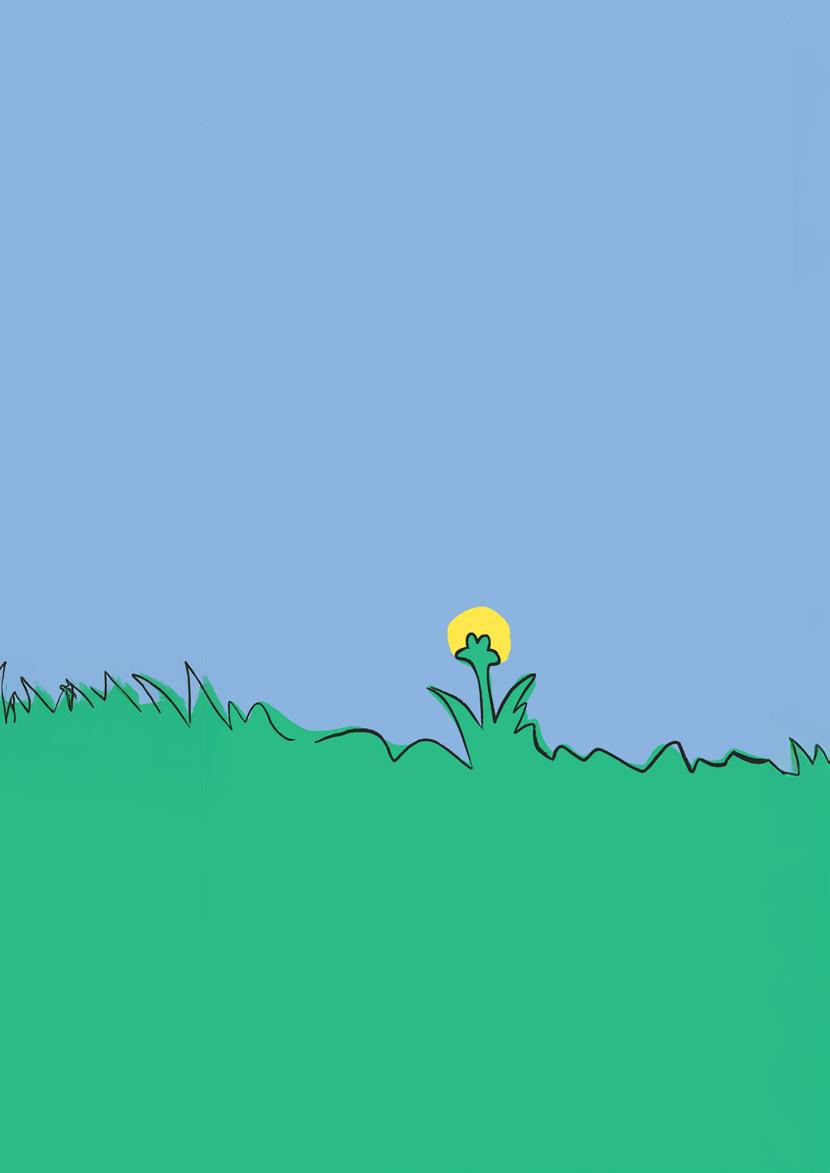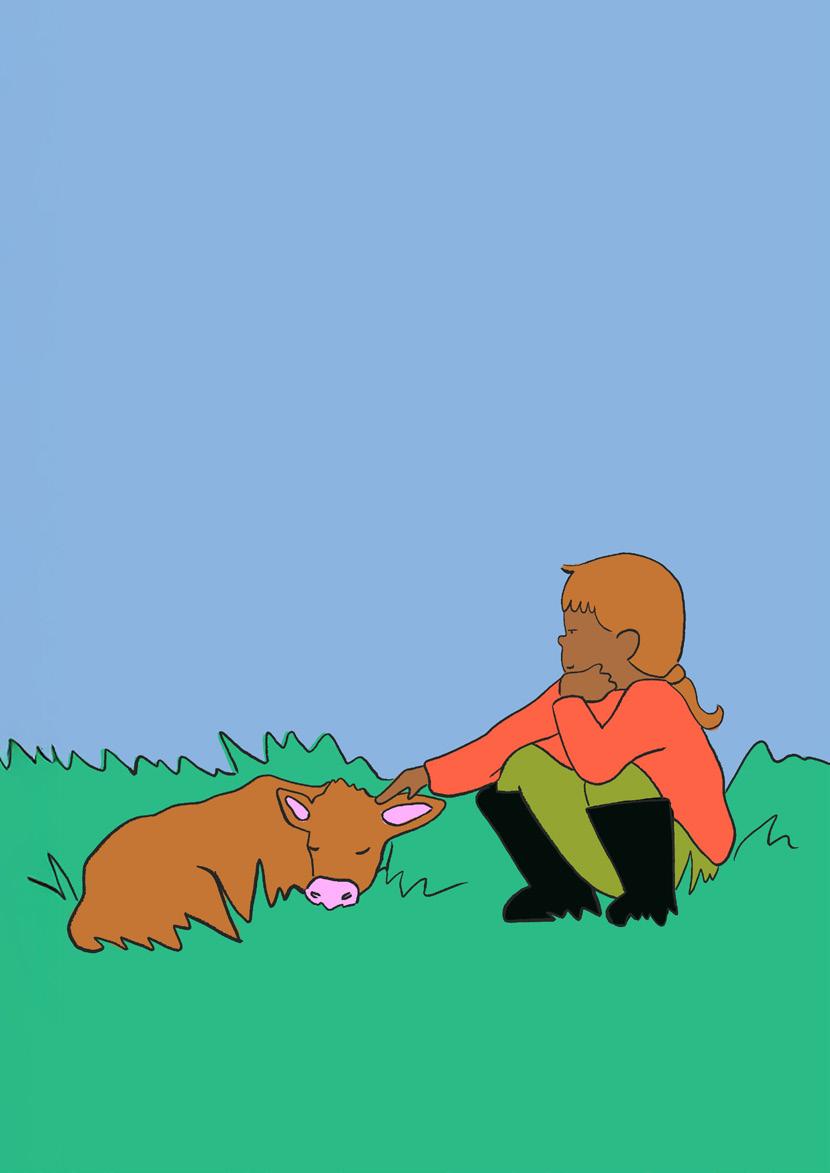

SOIL SISTERS
A journey towards gender transformative agricultural policies
Jeanne Saboureault and the SWIFT team
SOIL SISTERS
A journey towards gender transformative agricultural policies
Deliverable 5.4 - October 2025
Views and opinions expressed are those of the author(s) only and do not necessarily reflect those of the European Union or European Commission. Neither the European Union nor the European Commission can be held responsible for them.
A few years ago, while they were witnessing a cow giving birth, Carmen’s grandmother said to her: You know, Carmen, women always had to fight for their rights.
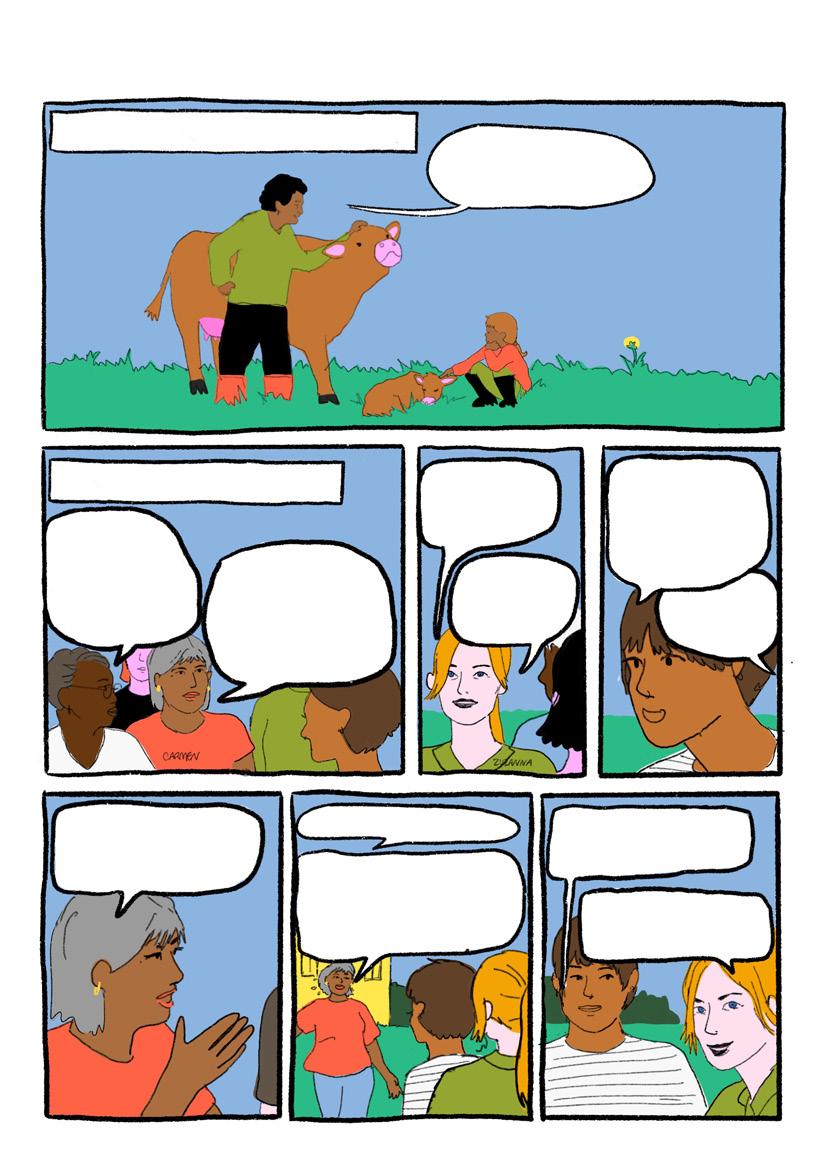
March 2023, Spain. The Swift project 1st meeting.
The idea of the SWIFT project is to allow women like us, farmers in Europe, to testify about our realities.
We didn’t wait for policymakers to address gender inequalities, and we are taking action with the resources available !
Could we write down everything we’d like to see change?
Maybe it could even reach the European Commission.
It would be great if we could promote food systems and claim our human rights.
I think we have a few words to say to them.
After all, we work just as hard as anyone else. If not harder ! Why should our rights be any different?
ELISABETH ! ZUZANNA !
I really enjoyed our discussions. Would you like to stay in contact, see if we can support each other and push for change?
Yes! I’d love to ! I’m a bit isolated at my school right now. What about you, Zuzanna ?
DEFINITELY !!
We could name the group ‘Soil Sisters’! Right?”
Elisabeth returns home to Austria after the meeting. Between mountains and tradition, she often lives between two worlds.
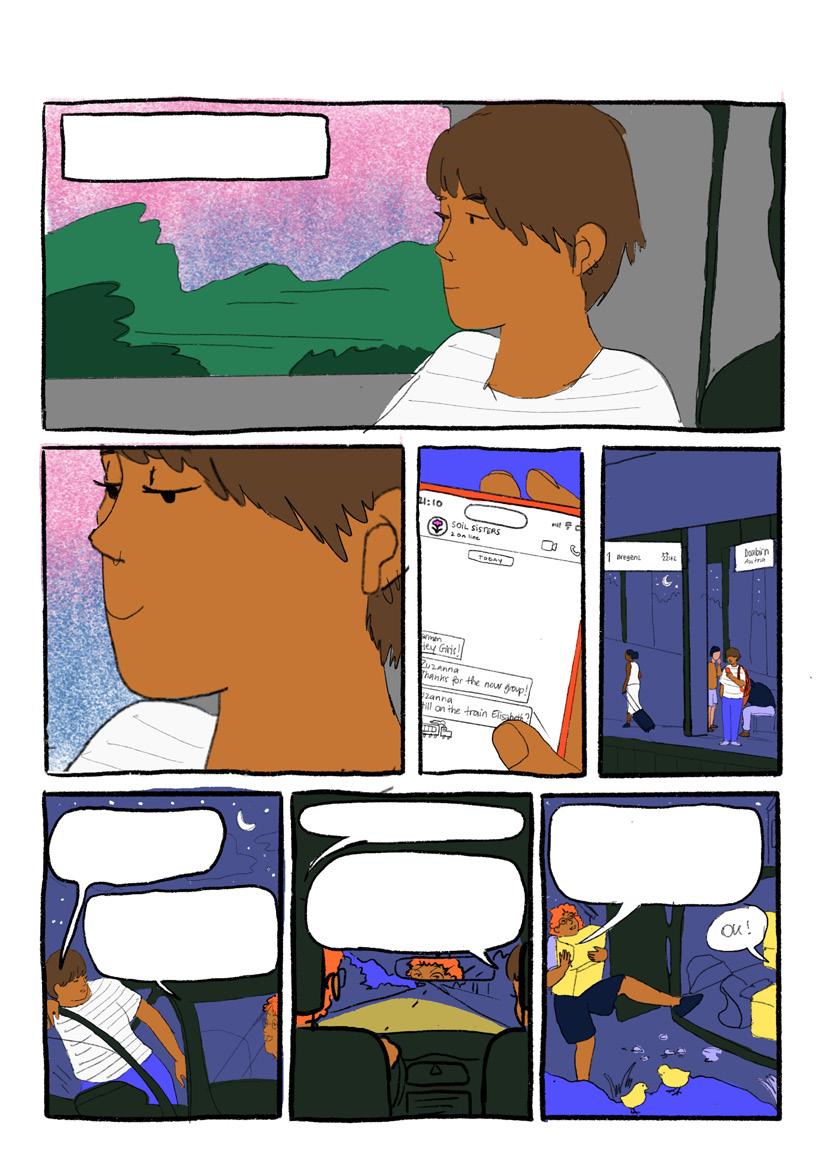
Zuzanna has been added to the group ‘SOIL SISTERS.’ Carmen has added you to the group ‘SOIL SISTERS.
Thanks for coming to get me, Mom. Sorry, I missed the last bus...
It was for a good cause ! Thank you for replacing me.
Was it interesting, that meeting of European women farmers?
Yes, I met incredible, inspiring women. Meetings like this give hope. Next time we’ll go together.
Elisabeth, can you grab some bottles from the barn? Our neighbor dropped off some chicks, I’d like to thank her.
Last day of school ...
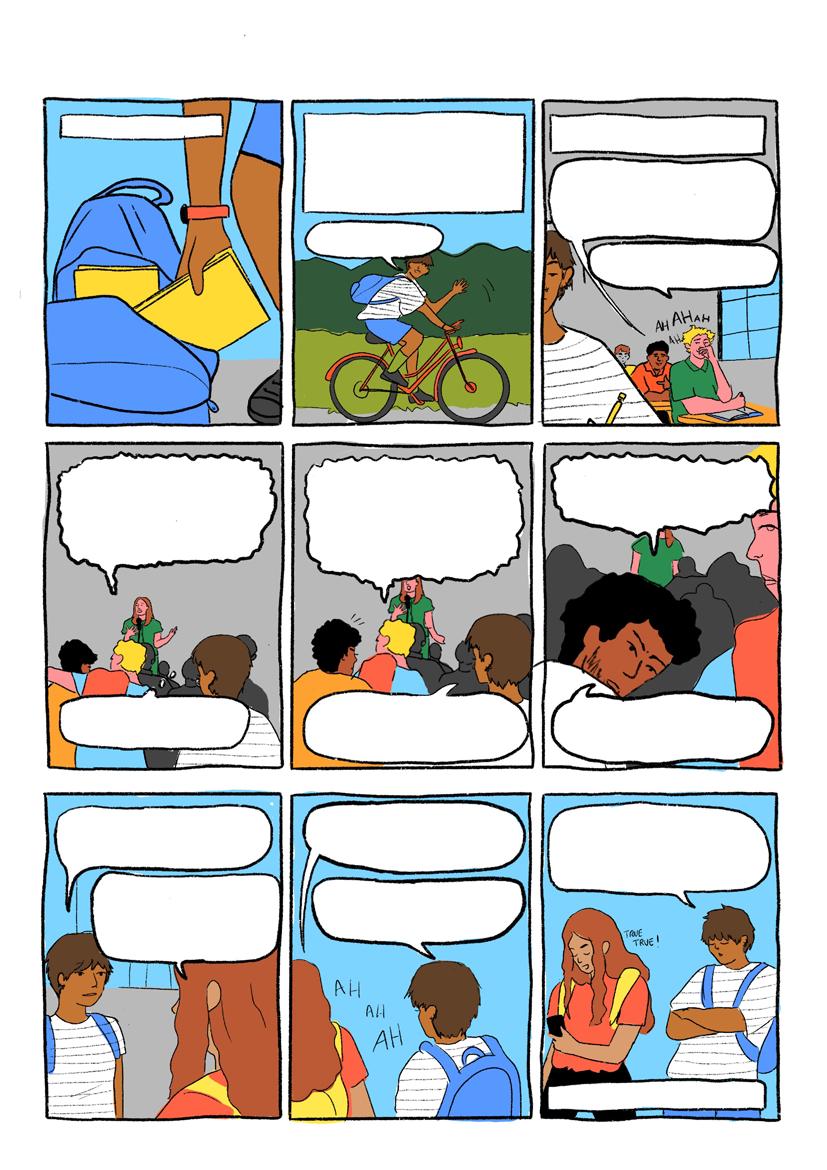
Dear students!
As the principal of this high school, I must thank you for following this specialized course in agriculture.
After that, it’s the most important summer of my life, where everything is decided. I have to choose my future at 18.
See you tonight !
In my agricultural secondary school, I’m still a curiosity...
The girls in mechanics class are just... I mean... not so girly, you know ? Our only chance left is «Bauer sucht Frau *» ! Riiiight ?! I couldn’t think of Elisabeth as a girl !
What does «being a girl» mean anyway...
I am very proud of you, and to see that our school is evolving and that we are welcoming more and more girls to our benches each year: 20% !
I wish you a great career as farmers. And a great summer. Thank you all.
What are you doing next year ? Taking over the family farm?
Hum no, my little brother will. ‘Guess I’ll have to find a guy who has one. It seems easier that way.
20% isn’t revolutionary when women make up half the population...
You girls are never satisfied with progress. Come on, I’ve had enough of her.
You Elisabeth, do you have a boyfriend ? I don’t remember asking.
I hope I won’t need a husband to make a living from my work. ahah !
Why do we always have to talk as if a man is needed in a farm ? We can do things on our own.
Will I be happy the way I am ?
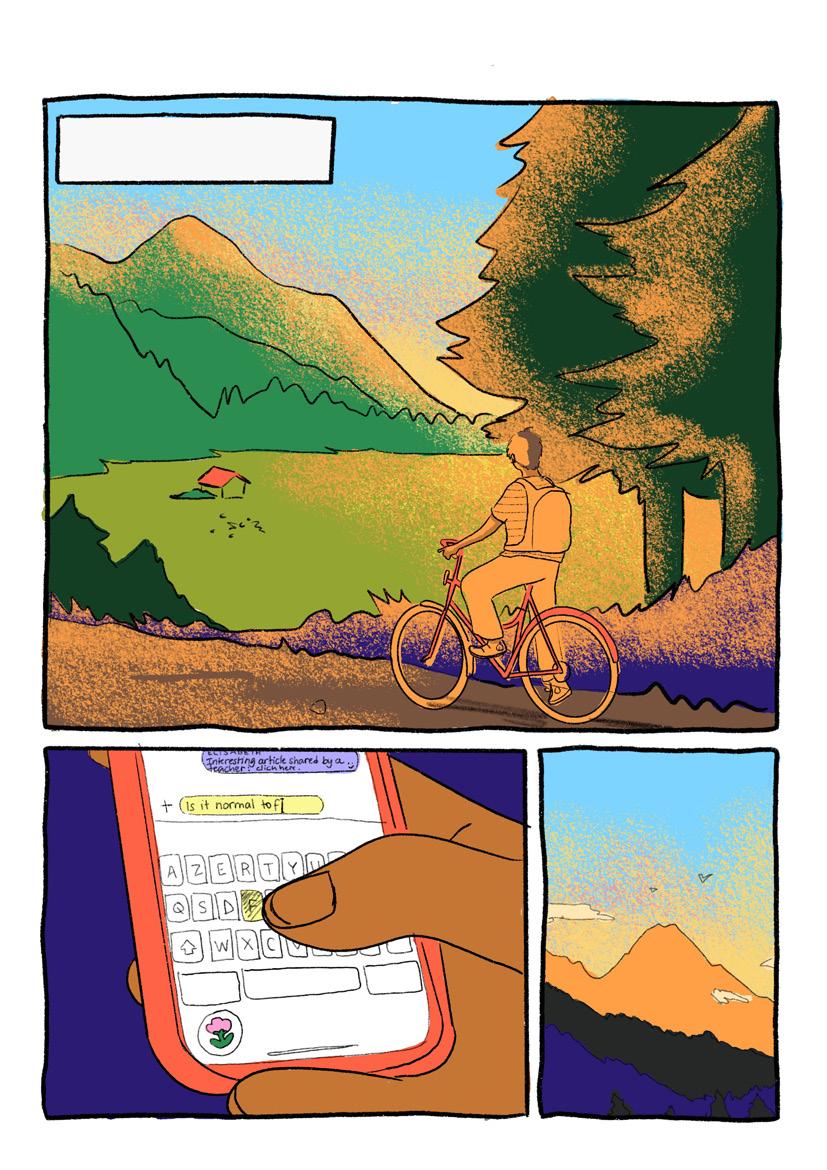
... Live my life as I wish and with whom I wish on the farm, and in the countryside in general?
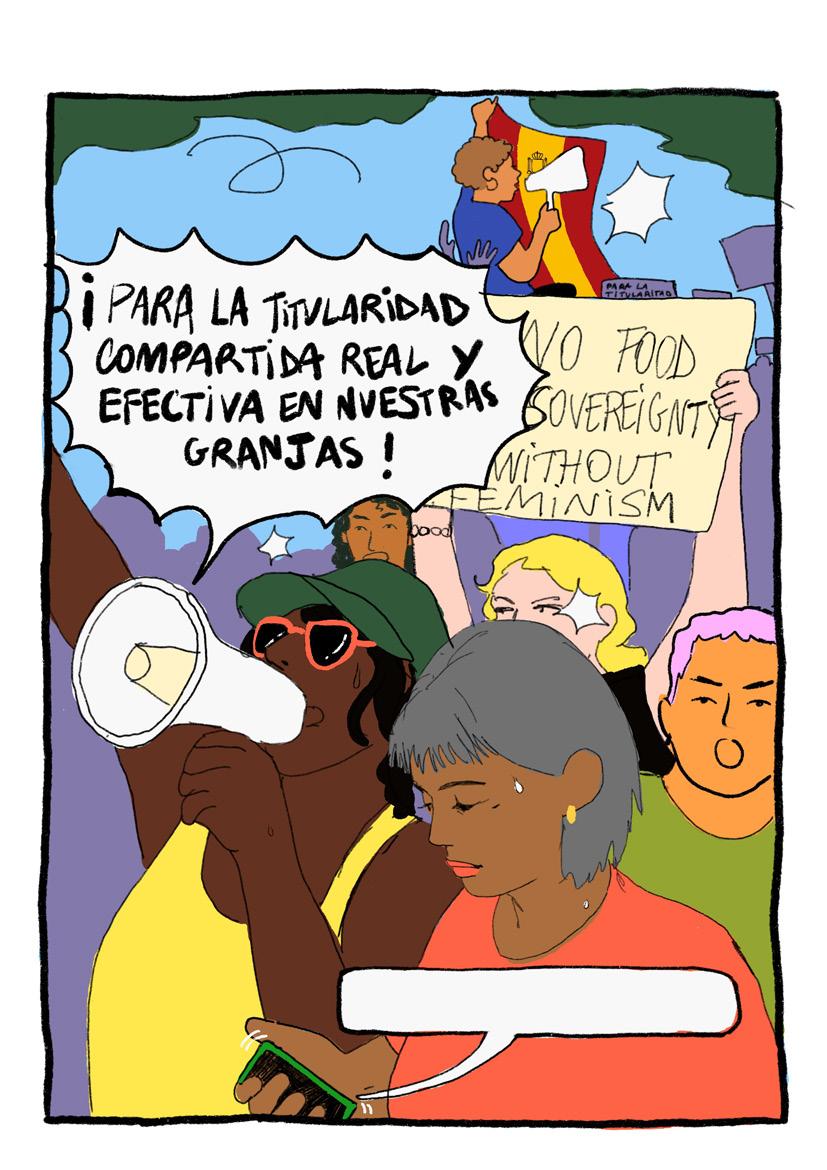
friday 04/07
Elisabeth Is it normal to feel like a stranger in a world you know by heart?
An invisible bond was formed...
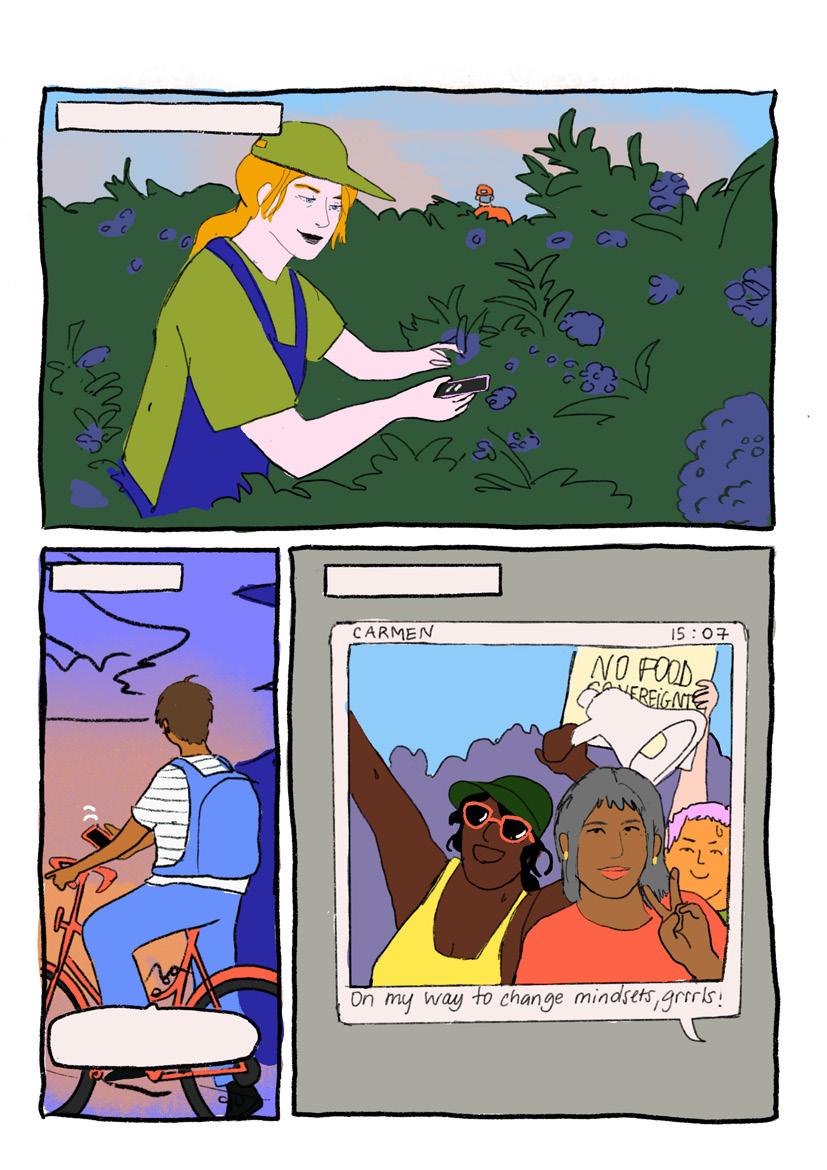
Through words...
Unity is strength... I’m really glad I went to that meeting.
Through hardships too
I have been involved in an agricultural union for years. It was created under the dictatorship
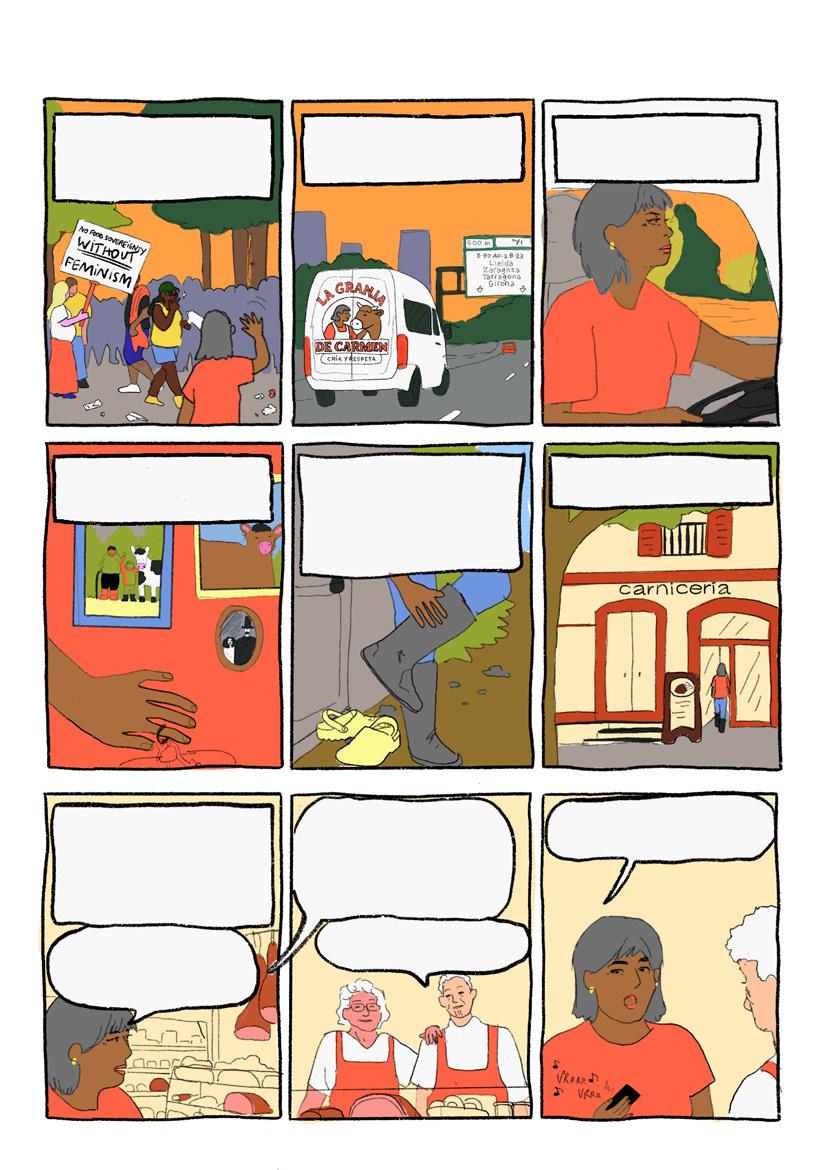
Sometimes, we feel so alone fighting for rights that seem so obvious to us.
The aim was to change the injustices suffered by the countryside in our region.
But more than 50 years later, we are still suffering from these inequalities.
I am a union member because, as woman working alone on a farm, with independent status, I think it is essential that we have a say on the CAP as women farmers.
We continue to be discriminated against, pushed aside.
It is essential for us to see where the funds are going, under what criteria, for what type of production and who the majority owners of these productions are.
Hello, how are you? Thanks for making time so late, I was at a protest this afternoon.
Do you think it would be possible to increase the sale prices? With the drought, I’ve had to buy more feed lately for my animals, since the fields are too dry.
We’ll think about it, Carmen, we’ll find a solution.
Ah, it’s already so late, I’ll let you close up. See you soon!
I want to change things too. Here is a picture of my blueberry farm in Poland with the seasonal workers :)
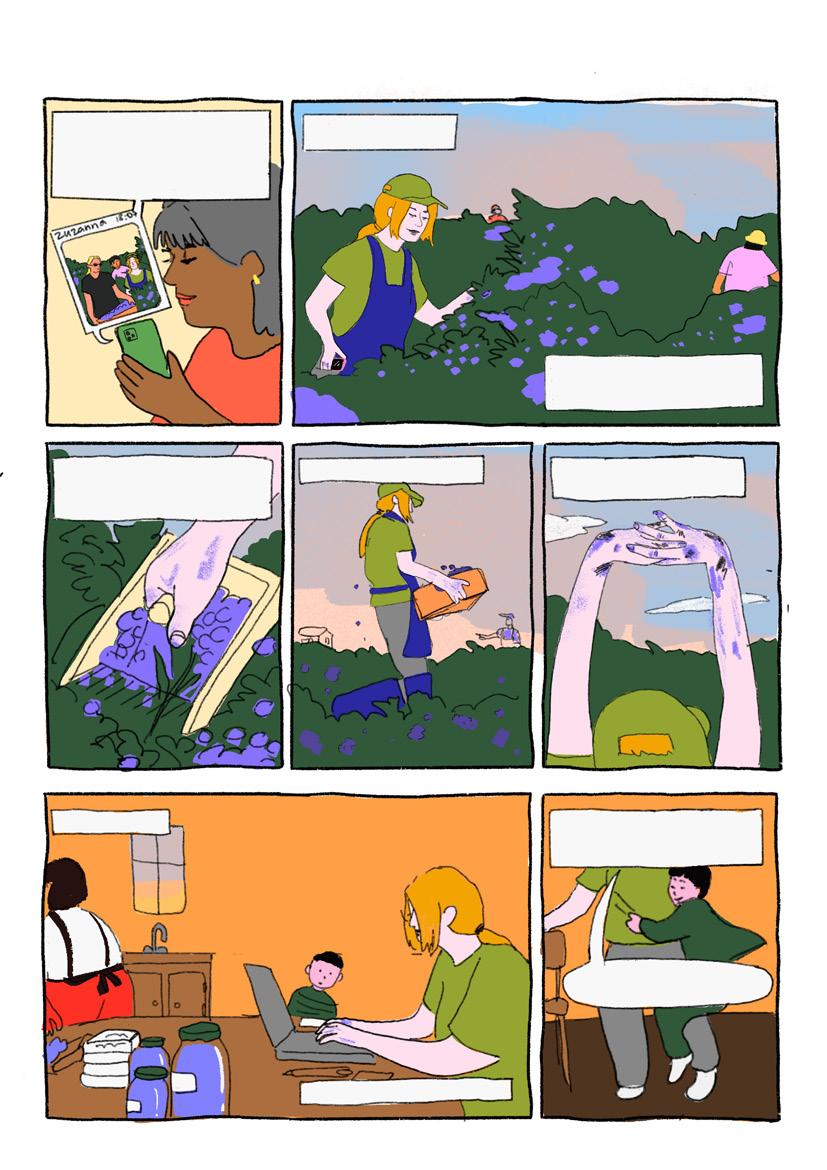
I know every tool, every field, every season, I know our farm by heart.
I grew up on a farm.
...my in-laws...
It was passed on to my brother and now I work on my husband’s farm.
I take care of the farm... ...but also of the house, the children...
...and the administrative work.
...which plays a huge role in maintaining a farm and yet is invisible.
Wait, get down, mommy’s back hurts, sweetheart.
Will you manage to finish preparing for the market? I absolutely have to deliver the supermarket order, I’m late again, but he said I could still come until 8 pm.
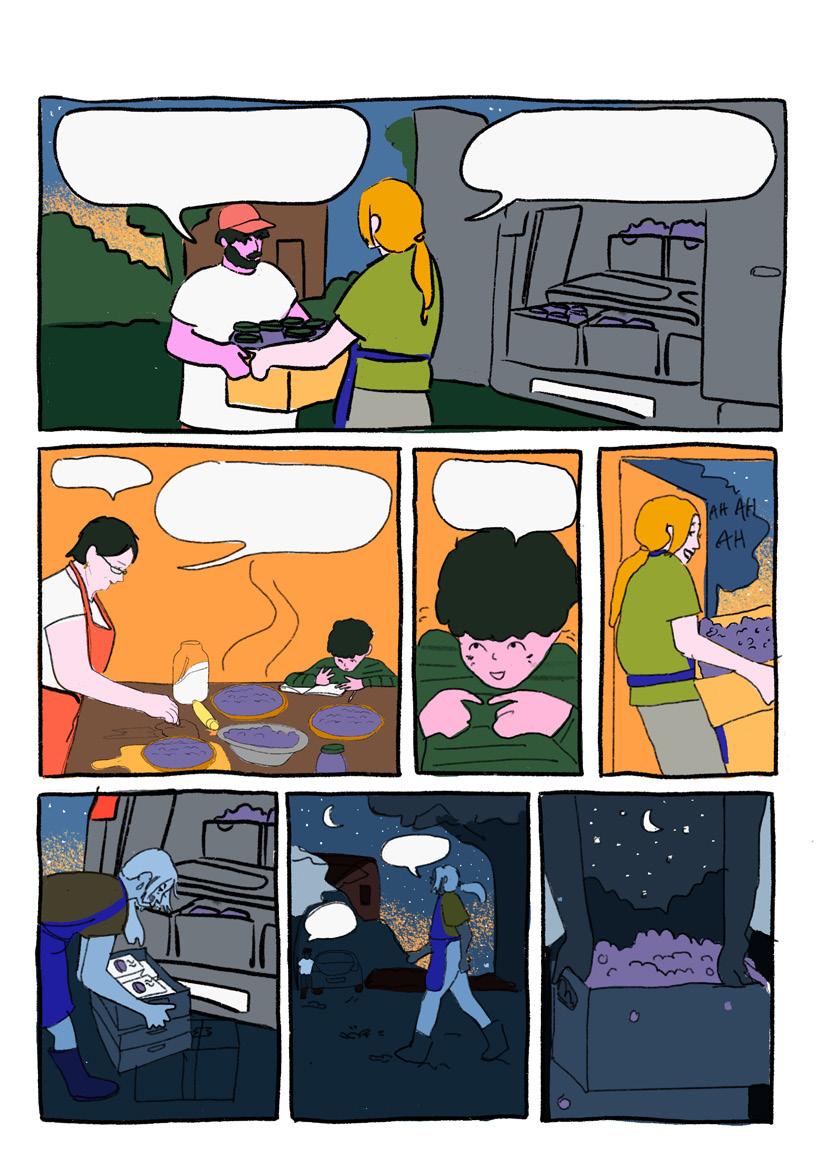
Yes, go quickly! We won’t have time tomorrow morning! I’ll handle the rest, your mom is with the kids, don’t worry.
4 minus 3?
Look at the pie, if we cut it into 4 and you take 3 slices, how many are left?
I’ll give you the answer if you give me three slices.
Working the land is not a minor job. It’s a wonderful profession.
I’ll take a big one this time. Your pie is wonderful!
Thank you ! Taste this jam too, and give me a feedback next sunday. It’s on me. Have a nice day !

But women who work the land must also be recognized. Because they exist.
Hello ladies!

Are you thinking of taking the tractor driving course?
I don’t know. I thought about it, but we already have so much to do...
I saw this morning you hadn’t replied yet to the email from the Agricultural Advisory Centre.
Ah yes, I forgot.
There you go, have a nice day !
hello Mister ! I didn’t see you last week! How are you?
Always well when I see your stall!
Zuz’, I could replace you if you want to go, you know ?
Thank you honey. But to be honest, I already know how to drive the small tractor we have, and it’s not so bad.
I already have so much to do, between the farm, the admin and the housework. I don’t have time.
There are a lot of general things that could change in agriculture, that are affecting women to a bigger extent.
See you next week, right? Here’s a little gift!
Oh you’re so sweet!
These are rules made by people, for people and they can be changed again!
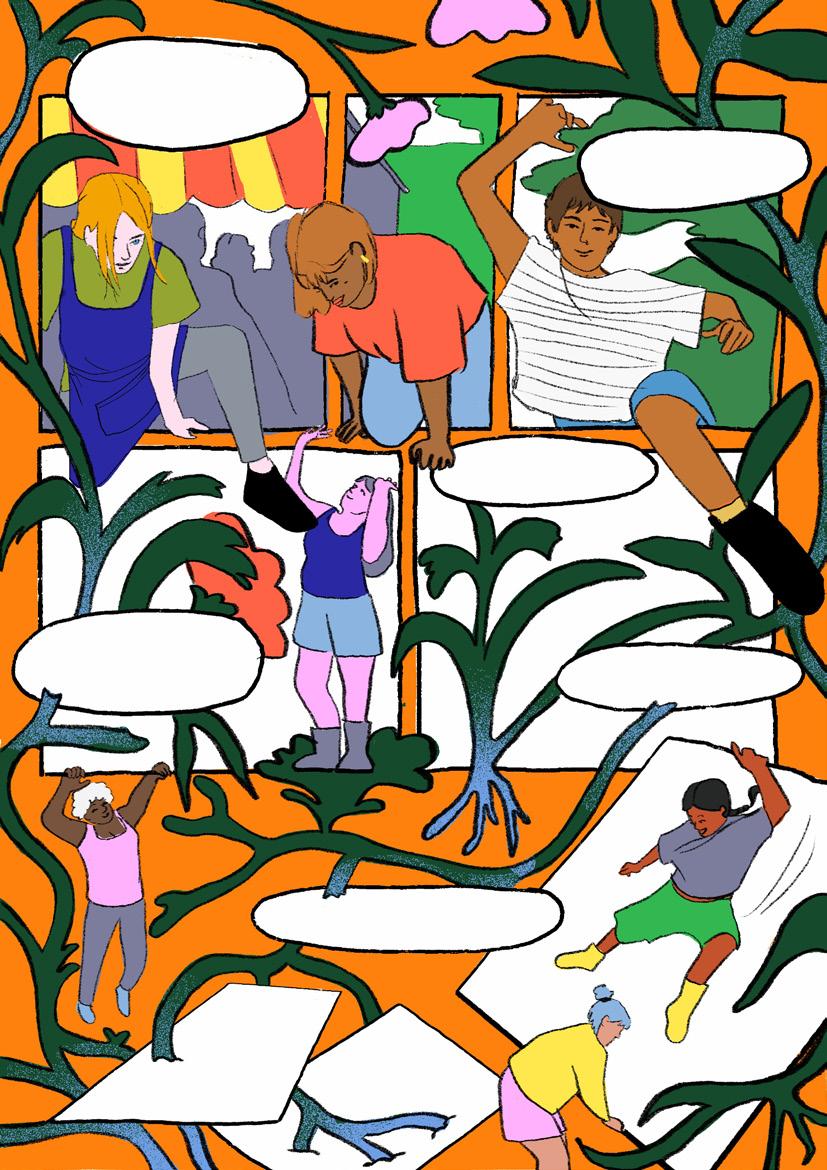
Care work is not appreciated anywhere, even outside agriculture!
G
ender equality also affects men. They must also be made responsible and taken along.
Food is a human right and a common good !
We want new roots for our world.
Equality is not the same as equity!
alone seem I am a union member because, as woman working alone on a farm, with independent status, I think it is essential that we have a say on the CAP as women farmers.
We continue to be discriminated against, pushed aside. see going, for production and owners of so this
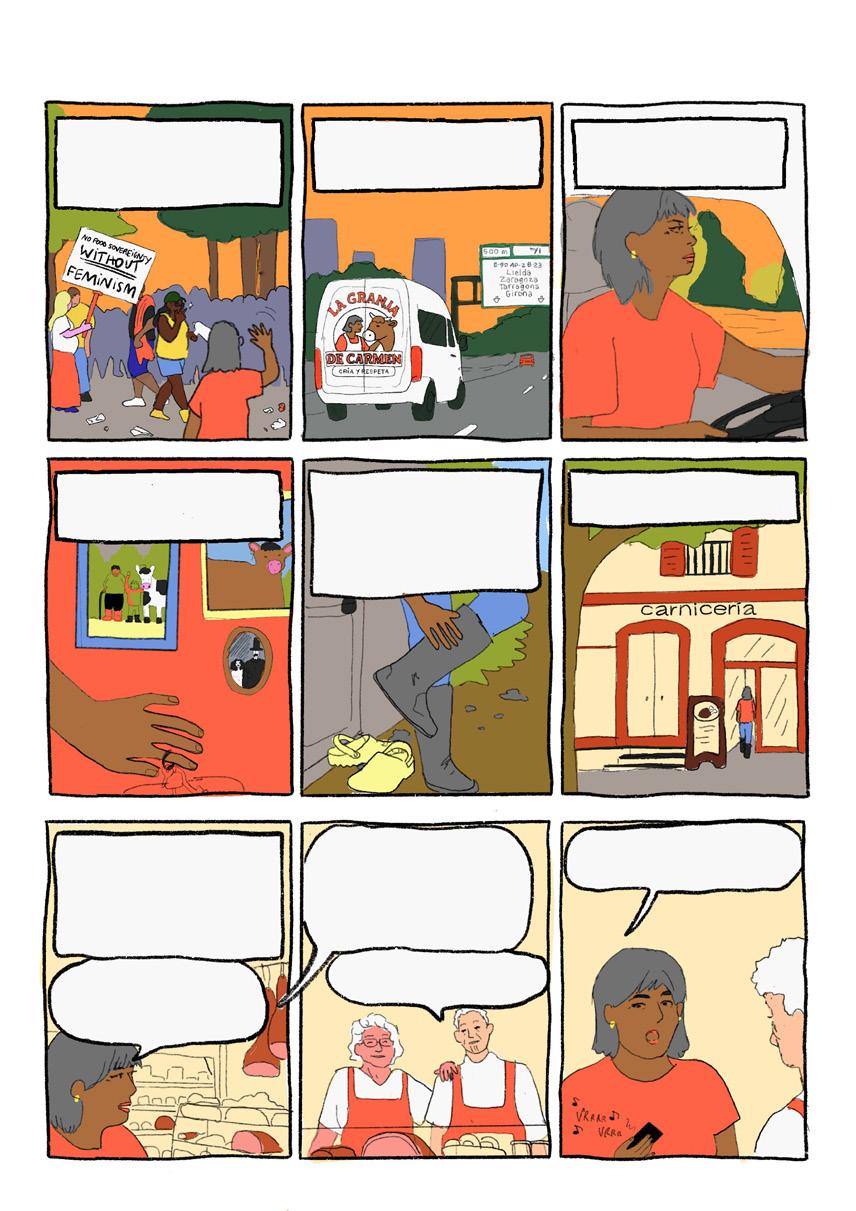
What is Carmen referring to when she says the Common Agricultural Policy (CAP) is discriminating women?
One major factor is that women tend to manage smaller farms than men. On the other hand, the current CAP budget (2023-2027) accounts for 30 % of the EU’s long-term budget. Of this CAP budget, 70 % finances direct payments, that are calculated in euros per hectare or per animal. Therefore, the larger a farm is, the more subsidies it receives from the CAP. This means that women benefit less from this support.
Do you think it would be possible to increase the sale prices? With the drought, I’ve had to buy more feed lately for my animals, since the fields are too dry.
Ah, it’s already so late, I’ll let you close up. See you soon!
Measures that appear neutral in appearance can have a gendered impact.
We’ll think about it, Carmen, we’ll find a solution.
This is also the case when CAP interventions require farmers to prove that they have received an agricultural education or to be the head of the farm. Due to gender norms, women are more likely to pursue careers in care work than in agriculture and technical domains. For the same reasons, women farmers represent an average of 30% of total EU farm managers.
Another concern is that European agriculture relies heavily on the exploitation of free or cheap labour. The work of women and migrant workers is rendered invisible despite their centrality to the functioning of global and European agriculture.
The 2023-2027 CAP introduced social conditionality, linking CAP payments to certain EU labour standards, an important innovation with a lot of potential. However, it does not go far enough: neither in scope nor in terms of the level of sanctions it sets. It has a limited effect on sectors where seasonal migrant workers are present, such as the fruit and vegetable sectors. Furthermore, social conditionality is based on sanctions, which are often irrelevant compared to the profits gained through fraud and violations of seasonal workers’ rights. It also lacks incentives to ensure permanent, stable, well-paid contracts and decent living conditions.
Finally, the model of “family farms” transferred through heterosexual marriage can exclude LGBTQIA+ people from farm inheritance and access to land. LGBTQIA+ people may also face discrimination due to their identities, leading to higher rate of poverty and making it even more difficult to access credit and land. This, together with the commitment to social equity values, can push them to alternative farming systems. Their journey of deconstructing and reconstructing gender and farming identities can also inspire more diverse and resilient food systems.
If you'd like to know more, we invite you to take a look at the following reports:
Gender and Agriculture: Policy tensions behind the EU gender gap
Uncovering the effects of the Common Agricultural Policy (20232027) on women
How to get the CAP to rhyme with gender equity?
The professional status of rural women in the EU
This comic, illustrated by Jeanne Saboureault, has been produced by the SWIFT project The scenario has been co-created by Jeanne Saboureault, Louise Legein and Jessica Duncan It was reviewed by researchers from the SWIFT project and the articulation of women of ECVC.
The objectives of the project are to address gender inequalities in farming and rural areas, improve female, LGBTQIA+ and migrant farmers and workers representation in agricultural and rural development policies, and demonstrate “women-led innovations” added value for food systems.
It involves researchers, farmers, civil society organisations (CSOs), all working together to meet those objectives.
One aspect of the project was to analyse the agricultural policies of the European Union (EU) to see how they currently integrate gender into their legislations and related budgets. This was conducted through desk review and policy dialogues between farmers, policy makers, researchers and CSOs.
The results of this work fed the comic.The idea was to show that behind seemingly cold policy demands, there are actual farmers, facing various challenges, organising themselves, whose life would be made easier if they were effectively supported by policies.
By sharing their stories, we show that personal experiences are political. And not as isolated as it might feel for them sometimes. Furthermore, everyone is affected by policies and, as stated by Huong, our colleague from Oxfam in Vietnam during the SWIFT workshop on Gender Responsive Budgeting, citizens are tax payers and have the right to monitor and influence how the public budgets are spent. Policies and politics do not need to be this inaccessible blur, it can be owned by everyone and we can push to make it more equal.
Of course, policy makers have the final responsibility to take into account the realities of those concerned by the policies they design.
Finally, we would like to thank the farmers who took the time share their stories, give feedback on the comics, as well as researchers who reviewed it, and of course, Jeanne for her patience and her dedication.
